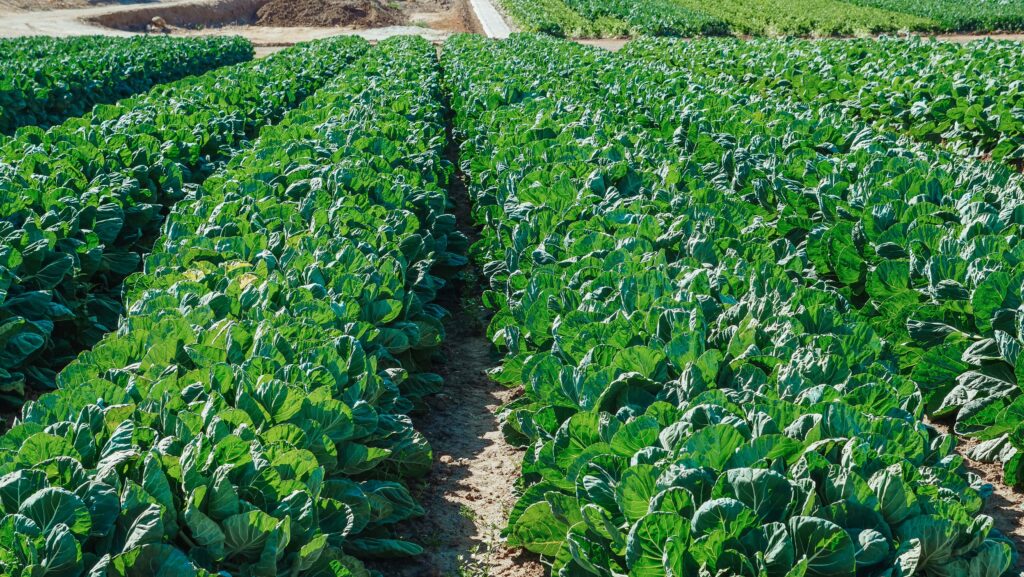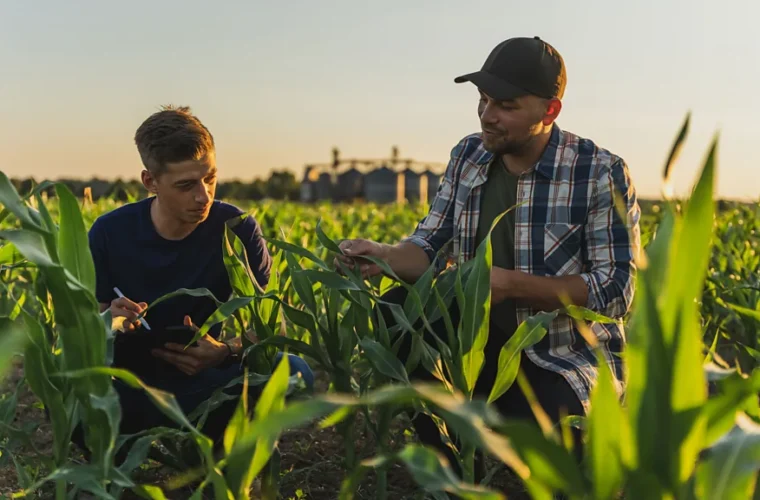Agritask: “We believe that providing data to all stakeholders from one platform, with a holistic view, is a major contribution to climate adaptation in developing countries because it empowers farmers to improve their agricultural operations and enables access to insurance and financing,” – said Amit Nooam to 4i-mag.com in our intriguing interview about Agritask, precision agriculture, and the profound digital transformation of the sector.
Agricultural Operations
How was Agritask born? Why specifically in the field of agriculture?
During 2010, agriculture was one of the few industries that had yet to go through digitalization, and it was a great opportunity — with perfect timing––to bring digitalization into the market. As a serial entrepreneur – Israel Fraier, the founder of Agritask – was looking for areas/industries in which the use of technology would advance and ultimately transform the industry. Using digital tools and data in agriculture would optimize and revolutionize farming.
The first project had to do with tracking the spread of the Mediterranean fruit flies that were wreaking havoc on the farming industry in Israel.
Israel and his team built a system for tracking the spread of fruit flies, which led to digitizing many farming operations.
The project eventually spread to different agricultural sectors such as wine, fruit, grains, etc. Finally, it led to other projects and customers in Israel, Brazil, and the rest of Latin America.

Coincidentally, the food industry was also looking for systems that would provide visibility into the state of farmers, growers, and the wider agri-food supply chain.
Today Agritask is working with the largest F&B companies in the world to optimize their supply chains and ensure sustainable farming and sourcing practices, impacting millions of farmers worldwide.
Farming Industry & Agritask
Please tell me a bit more about the founder.
Israel Fraier is the founder of Agritask and currently serves as a board director and advisor to the company for overall strategies and technology. He has 30+ years of entrepreneurial experience, during which he started high-tech businesses in several industries and successfully delivered innovative products to the world markets – including electrooptic airborne surveillance (Tadiran), medical imaging and endoscopic equipment (AppliTec), semantic search and data analysis (Entopia – KangarooNet), and cellular terminals and software for the mobile workforce (CelluTag).
Global Food System
What is the mission of Agritask? How are you trying to achieve that?
The global food system is in crisis. Food demand is projected to almost double by 2050, and the gaps we see in the agriculture industry are growing – $500Bn in yield losses in crops, $200Bn in near-farm waste, and an insurance gap of $250bn.
Agriculture is the last and the most significant industry to go through digital transformation. While the food industry is quick to adopt innovations in agri-food tech, farmers and the agriculture sector are lagging.
Agritask bridges the gap between farmers and the wider agri-food ecosystem. Our solutions provide:
- Food & Beverage companies with visibility into growing processes.
- More predictability about their supply chains.
- The ability to ensure and monitor sustainable and regenerative growing practices.
In the process, growers benefit from various digital farming tools and access to industry best practices to optimize their operations and increase profitability.
The Agritask Agronomic Intelligence Platform captures data from all relevant sources: field data via our mobile app, remote sensing, weather stations, sensors, irrigation, machinery, and a growing list of over 70 integrations with agronomic systems and enterprise software.
We then put it in the right context, leveraging proprietary models and customer configurable processes to provide actionable insights to multiple users in the agri-food ecosystem.
Who are your customers, and what is the business model behind Agritask?
Our customers are mainly:
Food & beverage companies – we enable them to optimize and predict supply chains, empower their growers, and ensure sustainable practices.
Insurance companies – we enable insurers to accurately assess the risk of individual farms to provide better, personalized coverage, making agriculture insurance accessible to the millions of uninsured farmers today.
Agriculture
What exactly is precision agriculture, and how is Agritask trying to help farmers and other players in agriculture?
Agritask supports precision agriculture, providing the analyses and insights farmers require to ensure they provide the right nutrients, fertilizer, water, etc.
Agritask focuses on collaboration, delivering a unified platform with tailored insights for farmers and F&Bs. Combining the know-how of the large corporations with the skills of smallholder farmers is revolutionizing how we grow food. By taking an active role, Food & Beverage companies bring advances directly to the farmers, benefitting every player in the supply chain.
Creating and sharing a comprehensive digital infrastructure is the first step to collaboration. It’s the best way for farmers to share information with F&B managers who may be thousands of miles away. It’s a way for F&Bs to know their growers better, making it much easier to monitor their entire supply chain – they have up-to-the-minute information about exactly who is growing what crops in what locations and during which season.
Agritask
How does the platform work?
Our Agronomic Intelligence Platform collects data straight from the field from different sources. The platform digitizes manual data via our mobile app and provides remote sensing data collected from different sources (satellite, weather data, etc.) with integration into 70 other precision agriculture systems. (Sensors and machinery that provide data from the area can be integrated into our systems, including ERP and other enterprise systems.).
Having one platform for all this data collected from different inputs makes it much easier to build decision-support models. This way, when X, Y, or Z happens, smallholder farmers and the F&Bs can plan their activities based on this data and automate notifications, alerts, and decision-making from an agronomic perspective.
Using our platform, companies can cover all farm management aspects of the supply chain, which means – all growing cycles, providing best practices, helping with predictability until it reaches the industry, and, in parallel, assure and ensure sustainable and regenerative farming practices. They can also use the system to track activities, calculate the cost of production and the carbon footprint, and create in-depth reports.
How are you different from your competitors? Why is Agritask unique?
Rather than focusing on a specific technology, crop, or farming practice, Agritask has built a robust platform that can integrate with any farming system and include additional information from sensors, weather stations, and satellite imagery to provide end-to-end digital farming capabilities. The system is fully configurable to provide tailored solutions for large growers, food manufacturers, governments, NGOs, and insurers.
In addition, agronomists have designed and developed the platform, and Agritask employs several agronomy experts to provide a true Agronomic Intelligence solution compared to other task-oriented digital farming solutions.
Digital Transformation
What have you achieved during the past few years? How would you evaluate the growth of the company?
Since Agritask started with a specific, single project focusing on tracking fruit flies across Israel, it has grown quickly, expanding into many other agriculture sectors in Israel and beyond. We are now working with the world’s largest F&Bs and insurance companies.
What do you attribute your success to?
It was a matter of seeing the opportunity and taking advantage of it at the right time. The agriculture industry was one of the last and largest industries to go through digital transformation. It was apparent that the market was finally ready and willing to start bringing it into the 21st century. Their realization and understanding that digitalization is crucial for revolutionizing the industry are critical to our success.

Challenges
What are the biggest challenges Agritask is facing, and how are you trying to solve those problems?
One of the biggest challenges we face is farmer adoption. Although we are working with many key players in the farming ecosystem and the F&B industry, we are still facing the challenge of getting smallholder farmers to adopt the technology. For example, we’re working on regional projects with smallholder farmers who lack education and technological abilities, preventing them from providing further input beyond the sensors placed in the field. This leaves significant information gaps in agronomic intelligence.
To solve this, we are focusing on communicating farmers’ values and benefits from adopting this technology – not only the F&B companies. Some benefits include tools to measure and monitor soil health, assess field moisture levels, and analyze crop health – data they can use to predict yields better and ultimately help with issues such as climate change, soil degradation, and water shortages.
Agritask – Future Plans
What are your plans for the next 5 and 10 years? What are the following milestones you are preparing for?
Following our recent round of funding, we can now go full steam ahead into scaling our operations across all activities. From a sales and marketing perspective, we are leveraging our amazing customer base to expand within customers and similar players in the industry.
From the product side, we are scaling in two main areas:
1. Strengthening our solution suites with dedicated solutions for key players in F&B and insurance.
2. Increasing our data offering and AI capabilities within the product.
In addition, we’re looking to answer better specific challenges we see in the market –
- Supply chain disruption due to climate change
- Carbon offsetting – Calculating and certifying carbon credits on every level of the supply chain – from the individual smallholder farmer who can sell the credits to supplement his income to the F&Bs, who can leverage the credits toward their production
- Regenerative agriculture – Help companies push the transition into regenerative agricultural practices
Climate Change
How do you imagine agriculture in the future? What changes are you expecting?
We are expecting to see a lot of effort put into two main areas:
Carbon offsetting and regenerative agricultural practices focus on reversing the effects of climate change.
How is climate change going to change agriculture in the future?
The agricultural industry is especially susceptible to climate change because of its inherent dependence on traditional weather patterns to sustain productivity. This susceptibility is more acute among farmers in the developing world, who primarily rely on natural resources and have less access to products, markets, and services, including insurance, which can mitigate climate change risks. F&Bs can leverage Agritask’s Agronomic Intelligence to better manage and encourage sustainable and regenerative agricultural practices within their supply chain, allowing for better use of resources.
What is the role of precision agriculture and your platform in adapting to these changes?
The combination of modern technologies allows the agriculture industry to mitigate existing environmental damage while directly addressing climate change, improving smallholder farm economics, and strengthening supply chain control.
We have witnessed how multiple stakeholders’ collective effort makes a difference in responding to this unparalleled climate change threat. Agritask has developed a scalable, data-driven agronomic platform that allows farmers and their stakeholders to enhance productivity, use inputs more effectively, and manage risks. The platform already supports 230,000 farmers across the globe in building climate resilience and is used by international insurers, reinsurers, and regional programs.
We believe that providing data to all stakeholders from one platform, with a holistic view, is a significant contribution to climate adaptation in developing countries because it empowers farmers to improve their agricultural operations and enables access to insurance and financing.



